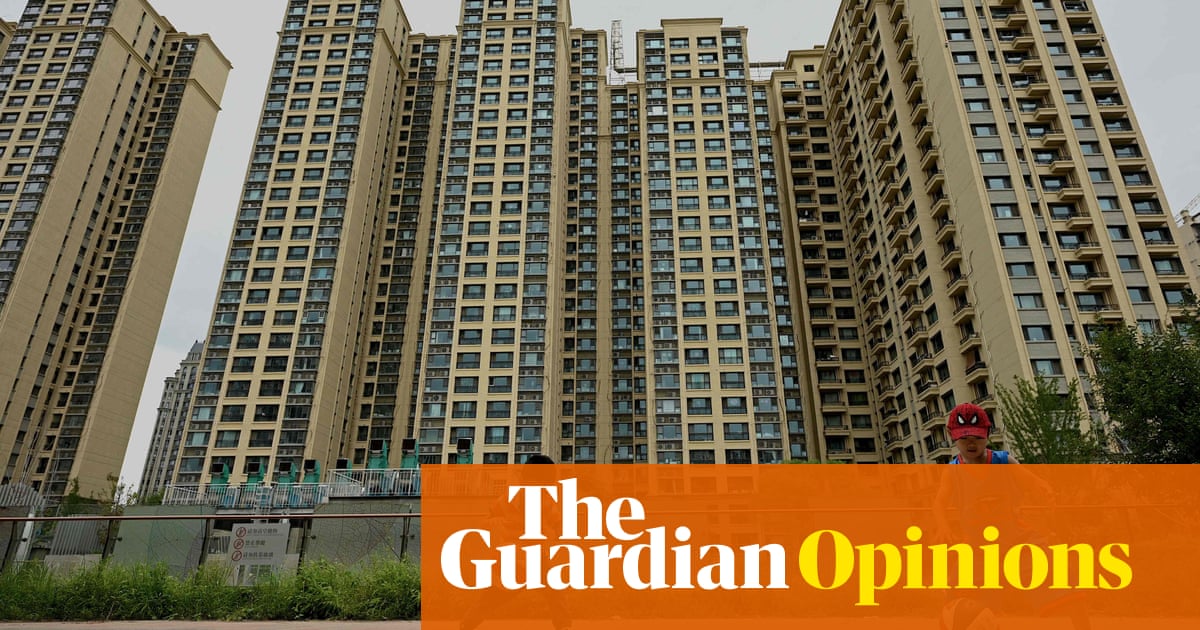
The property sector in the Chinese economy has always been something of a puzzle. At its peak, it accounted for a quarter of the nation’s economic output, broadly measured. And it sees people in Beijing and Shanghai paying house prices similar to those in San Francisco and New York, despite having just a quarter the income of American buyers.
Now many believe that we are about to see a violent contraction of the property market in China. The government wants to intervene to curb speculation, and rein in what it calls the “three high” problem: high prices, high debt and high financialisation. The approach has been nothing short of dramatic. Financing for property developers has tanked. Earlier this year, property sales declined by as much as 20-30%, in-progress developments are not being completed and people have taken to the streets, banding together to stop mortgage payments on such projects in protest.
Many of China’s largest property developers are failing to repay their debts. Even the survivors are cash-strapped and in a liquidity crisis. The risk is that the property market crisis will drag the broader economy down with it, hitting suppliers, small- and medium-sized companies in construction, as well as household consumption. And dangerously, the banking system has at least a quarter of its assets in property.
What is currently needed is a backstop to the self-fulfilling crisis: the belief that property developers will be insolvent impels buyers to hold off their purchases and financing to dry up. Some monetary easing and relaxation in the mortgage market is not enough: stimulating demand by loosening mortgage lending won’t solve the problem and a proposed bailout package will probably not move the needle. The government would need to offer much more relief to property developers, despite their past unscrupulous behaviour. To break the cycle, the government will need to send a much stronger message and instil confidence.
The short-term pressure on the Chinese economy is real, but China is not about to experience a severe housing crisis. For one, Chinese households historically have very high rates of savings, which should allow them to address interest payments relatively easily. This is not a situation like in the US or Europe in 2008, which saw highly indebted homeowners unable to make their basic payments.
And pent-up demand for housing is still there: rapid urbanisation means that new residents will want a place in the city; in a gender-skewed country with a highly competitive marriage market for men, bachelors become more “eligible” when in possession of a property.
Nor is a full-blown financial crisis likely. Major banks are state owned, and will not be allowed to fail. There are no complex, opaque chains of intermediation that characterise the western banking system. Foreign creditors to Chinese property developers will have to take a massive haircut, but the ripple effect on the international economy is likely to be limited. Foreign players have limited exposure to Chinese assets in general: today, less than 5% of Chinese equities and bonds are held by foreigners. This is unlike mortgage-backed securities, where the whole world was exposed leading up to the 2008 financial crisis.
What we are seeing today is already the third major property market cycle in the last 10 years. The state has its reasons to intervene: winning the hearts of the middle class starts with providing them with more affordable housing. An overheated sector also poses a threat to financial stability. In the past, profligate real estate companies have expanded into areas unrelated to property, while many other businesses turned to investing in property rather than focusing on their core operations.
But methods to cool down the market that are too quick and too draconian will backfire. The problem in the housing market is a structural one and needs to be resolved over time. One such problem is China’s financial system itself. Investing in property has consistently outperformed the market as a whole. Around 80% of the population owns property, and an astoundingly high proportion – reportedly over 20% in urban areas, and I have seen estimates as high as 40% in total – own more than one property.
Another problem is the “mayor economy”. Local government sells land to raise revenues, and additionally uses land as collateral to borrow profusely. Property has often been a catalyst for development: when a developer builds residential housing, it also brings along infrastructure investment, retail, services and jobs. This explains why in the last decade, local governments’ zeal has rapidly switched from industrialisation to massive urbanisation – a faster way to foster local GDP. And this has given free rein to developers to leverage up, hoard land and overexpand.
The state would like to see the property sector turn from “seldom cool and mostly hot” to the other way around. This requires a fundamental transformation of the nation’s economic structure, not just stringent regulations. Weaning the economy off property in an orderly manner requires skilled navigation and a lighter touch on the reins – something few governments have proven to be particularly good at.

